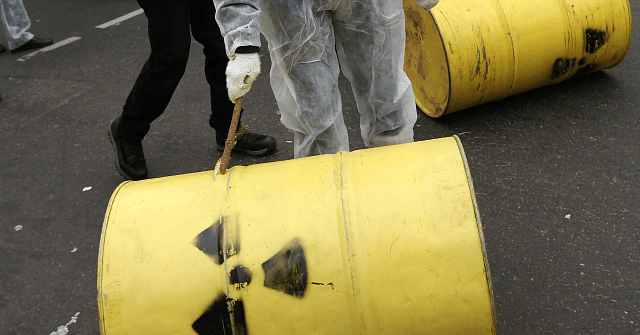In a recent interview on Fox5’s “Good Day New York,” Belleville, NJ Mayor Michael Melham expressed his concerns regarding the mysterious drones observed over his state, suggesting they could be linked to a troubling situation involving missing radioactive materials. Melham highlighted a lack of transparency from authorities, which, in his view, fuels conspiracy theories and public anxiety. He emphasized that while state police had assured him that surveillance assets were monitoring critical infrastructure, the ambiguity surrounding the drones raised questions. For Melham, this situation was either a source of comfort, knowing there were resources watching over New Jersey, or a cause for concern about what they might be investigating.
Specifically, Melham alluded to an alarming incident involving radioactive material that went missing after a shipment on December 2nd. The shipment was reportedly delivered to its destination, but the container was found to be damaged and empty upon arrival. He speculated that the drones might be searching for this lost radioactive material, potentially connected to a threat that entered through Port Newark. The mayor underscored that this incident exemplified the type of security risks that might warrant aerial surveillance, making it critical for the community to remain vigilant.
In his remarks, Melham observed a decrease in alarming activities in Belleville, suggesting that the enhanced security measures and monitoring had helped alleviate some dangers. However, he also mentioned that there were ongoing alerts in nearby Pennsylvania, indicating that while some regions might have improved safety, others still faced significant risks. This situation calls for more diligent communication from government agencies, he argued, as local leaders need to understand what threats might exist in their communities—especially when they are informed of alarm events.
Melham expressed frustration over the government’s response to these issues, particularly after a call with the White House where mayors were reassured that there was no cause for alarm. He recounted that during this conversation, local officials were met with skepticism regarding their observations, leading to outrage that crucial information was being withheld from them. The failure to provide consistent updates and coherent explanations has left mayors and community leaders feeling it is their responsibility to advocate for transparency from higher authorities.
The mayor’s remarks highlight a growing disconnect between local governments and federal agencies. He pointed out that while mayors are left without adequate information to adequately assess risks in their communities, top-secret briefings are being conducted in Congress, suggesting that there may be significant knowledge about these incidents that is not being shared with local leaders. This sense of frustration is compounded by the challenge of navigating the fine line between safety and public panic, particularly in the face of potential emerging threats.
In conclusion, Melham’s statements underscore the critical need for improved communication and transparency regarding security matters affecting local communities. As factors such as missing radioactive materials and the presence of surveillance drones create uncertainty, community leaders like Melham seek clear and honest dialogue from state and federal agencies. This situation illustrates the broader challenges faced by officials as they strive to maintain public safety while navigating a complex landscape of information, security threats, and governmental accountability.

